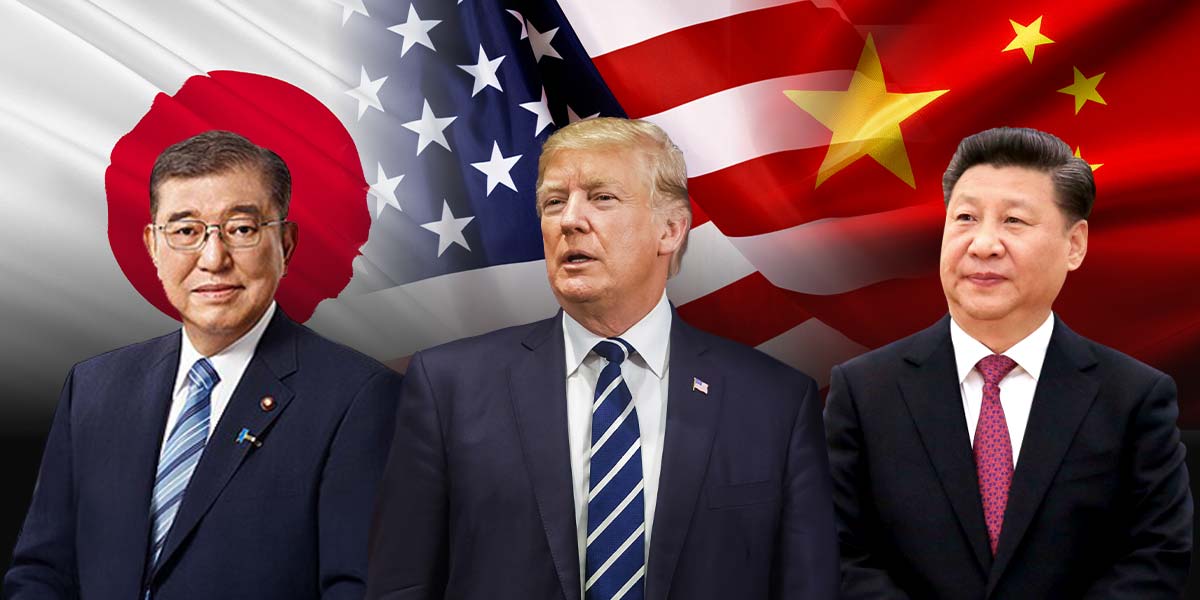A Japanese delegation of high-ranking officials is set to deliver a personal letter from Prime Minister Shigeru Ishiba to Chinese President Xi Jinping this week, in an effort to keep Japan clear of the intensifying trade tensions between China and the United States.
This came after Japanese delegates visited the U.S. last week to negotiate on the implementation of import tariffs imposed by the U.S. President Donald Trump. The second meeting with Washington is expected to be within this month.
Tetsuo Saito, head of Komeito, will be on a three-day visit in Beijing to deliver the letter and discuss further matters with Chinese Communist Party officials.
Japan is seeking a delicate balance, managing its close economic relationship with China—its largest trading partner—with the United States as it navigates trade negotiations in hopes of being spared from the broad tariffs introduced by the Trump administration earlier this year.
While China represents around 20% of Japan’s trade, it has cautioned countries against signing trade pacts with the U.S. that could compromise Chinese interests. Meanwhile, several sources stated that Washington urges its allies during the negotiation to reduce trade relations with China amid ongoing tariff deliberations.
Japan is also coping with various bilateral issues with China. Notably, China has maintained a ban on Japanese seafood, a retaliatory measure against Tokyo’s disposal of radioactive water from the damaged Fukushima Dai-ichi Nuclear Power Plant into the sea.
Prime Minister Ishiba recently expressed dissatisfaction with U.S. demands regarding tariffs. His robust statements mark a clear stance, as he argued against ceding every point to the U.S., specifically in the context of pressure impacting Japan’s automobile and agricultural sectors as part of the broader trade war initiated by President Trump.
Tokyo is currently formulating its approach for a second phase of trade talks, targeted for completion by April’s end, following preliminary discussions with U.S. officials last week. Though exact U.S. demands are unclear, Trump often cites the absence of American cars on Japanese soil as a complaint, alongside tariffs on agricultural imports like rice, which he views as unfair trade obstacles.
The automotive sector is Japan’s powerhouse export industry, and the country’s farmers, significant supporters of the ruling Liberal Democratic Party, are crucial ahead of a national election in July. Ishiba has been vocal in parliament about defending agricultural import protections.
The PM also countersa U.S. narrative that has also scrutinized Japan’s financial contributions toward the U.S. military’s presence in Japan. Ishiba, however, is firm against increasing Japan’s financial burden in this area.





